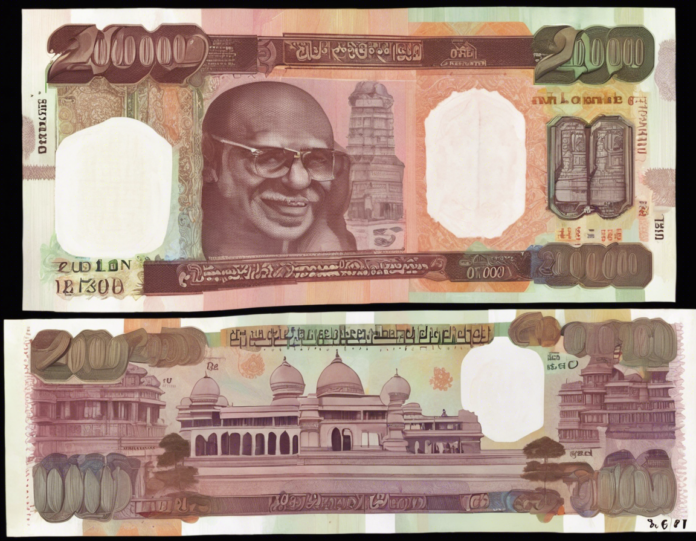Currency Exchange Basics
When traveling or engaging in international transactions, it’s crucial to understand currency exchange rates. Exchange rates determine the value of one currency relative to another and can fluctuate based on various factors such as economic indicators, geopolitical events, and market sentiment. If you’re looking to convert $2000 to Rupees, understanding the exchange rate dynamics is essential to maximize the value of your money.
Understanding the US Dollar and Indian Rupee
The US Dollar (USD) is the world’s primary reserve currency and is widely used in international trade and finance. On the other hand, the Indian Rupee (INR) is the official currency of India and is issued by the Reserve Bank of India. The exchange rate between the USD and INR fluctuates based on supply and demand dynamics in the foreign exchange market.
Factors Influencing Exchange Rates
Several factors impact exchange rates, including interest rates, inflation, economic stability, geopolitical events, and market speculation. Central banks’ monetary policies, trade balances, and political stability also play a significant role in determining exchange rate movements.
Calculating the Exchange Rate
To convert $2000 to Rupees, you need to know the current exchange rate between the USD and INR. Exchange rates are typically quoted in pairs, with the first currency being the base currency and the second currency being the quote currency. For example, if the exchange rate is 1 USD to 75 INR, it means that 1 US Dollar is equivalent to 75 Indian Rupees.
Conversion Process
To convert $2000 to Rupees, you simply multiply the amount in USD by the exchange rate. Using the example exchange rate of 1 USD to 75 INR, the calculation would be as follows:
$2000 x 75 = 150,000 INR
Therefore, if the exchange rate is 1 USD to 75 INR, converting $2000 would yield 150,000 Indian Rupees.
Exchange Rate Fluctuations
It’s important to note that exchange rates are constantly changing due to various factors influencing the currency markets. Therefore, the amount of Indian Rupees you receive for $2000 can vary based on when you initiate the currency conversion. Monitoring exchange rate trends and staying informed about economic developments can help you make informed decisions regarding currency exchanges.
Tips for Currency Exchange
- Compare exchange rates offered by different financial institutions and money changers to get the best deal.
- Consider using online currency converters or mobile apps to track exchange rate movements in real-time.
- Be wary of hidden fees and commission charges that may impact the value of your currency exchange.
- If possible, try to exchange currency at reputable establishments to ensure the security and authenticity of the transaction.
- Plan your currency exchanges in advance to take advantage of favorable exchange rate movements.
FAQs
1. What is the best way to convert $2000 to Rupees?
To convert $2000 to Rupees, compare exchange rates from banks, money changers, and online platforms to find the most favorable rate.
2. Are there fees involved in currency exchange?
Yes, currency exchange providers may charge fees, commissions, or offer less favorable exchange rates, impacting the amount you receive in the converted currency.
3. Can exchange rates fluctuate significantly within a short period?
Yes, exchange rates can fluctuate rapidly due to market volatility, economic data releases, geopolitical events, and other factors.
4. Is it better to exchange currency in advance or upon arrival in India?
It’s advisable to exchange a small amount of currency in advance for immediate expenses and monitor exchange rate trends to optimize conversions for larger amounts.
5. Are there any risks associated with currency exchange?
Currency exchange involves risks related to exchange rate fluctuations, fees, and potential fraud. It’s essential to be vigilant and choose reputable exchange providers.
6. Can I negotiate exchange rates with money changers?
While some money changers may offer a slight discount for larger transactions, exchange rates are primarily based on market rates and may not be negotiable to a significant extent.
7. Is it advisable to use credit cards for transactions in India instead of currency exchange?
Using credit cards for transactions in India can be convenient, but be mindful of foreign transaction fees and exchange rate markups imposed by credit card companies.
8. How can I protect myself from counterfeit currency during exchange transactions?
Ensure to exchange currency at authorized establishments, verify the authenticity of banknotes, and refrain from engaging in transactions with suspicious or unlicensed vendors.
9. Are there any limits on the amount of currency I can exchange?
Currency exchange regulations may vary by country and institution. It’s advisable to check with your chosen exchange provider regarding any restrictions on the amount of currency you can exchange.
10. Can I exchange currency at the airport, or are there better alternatives?
While airports offer convenient currency exchange services, they often have higher fees and less favorable exchange rates. It’s recommended to explore other options for better deals.
In conclusion, converting $2000 to Rupees involves understanding exchange rate dynamics, monitoring market trends, and selecting reputable exchange providers. By staying informed and following best practices for currency exchange, you can optimize the value of your money when conducting international transactions.
